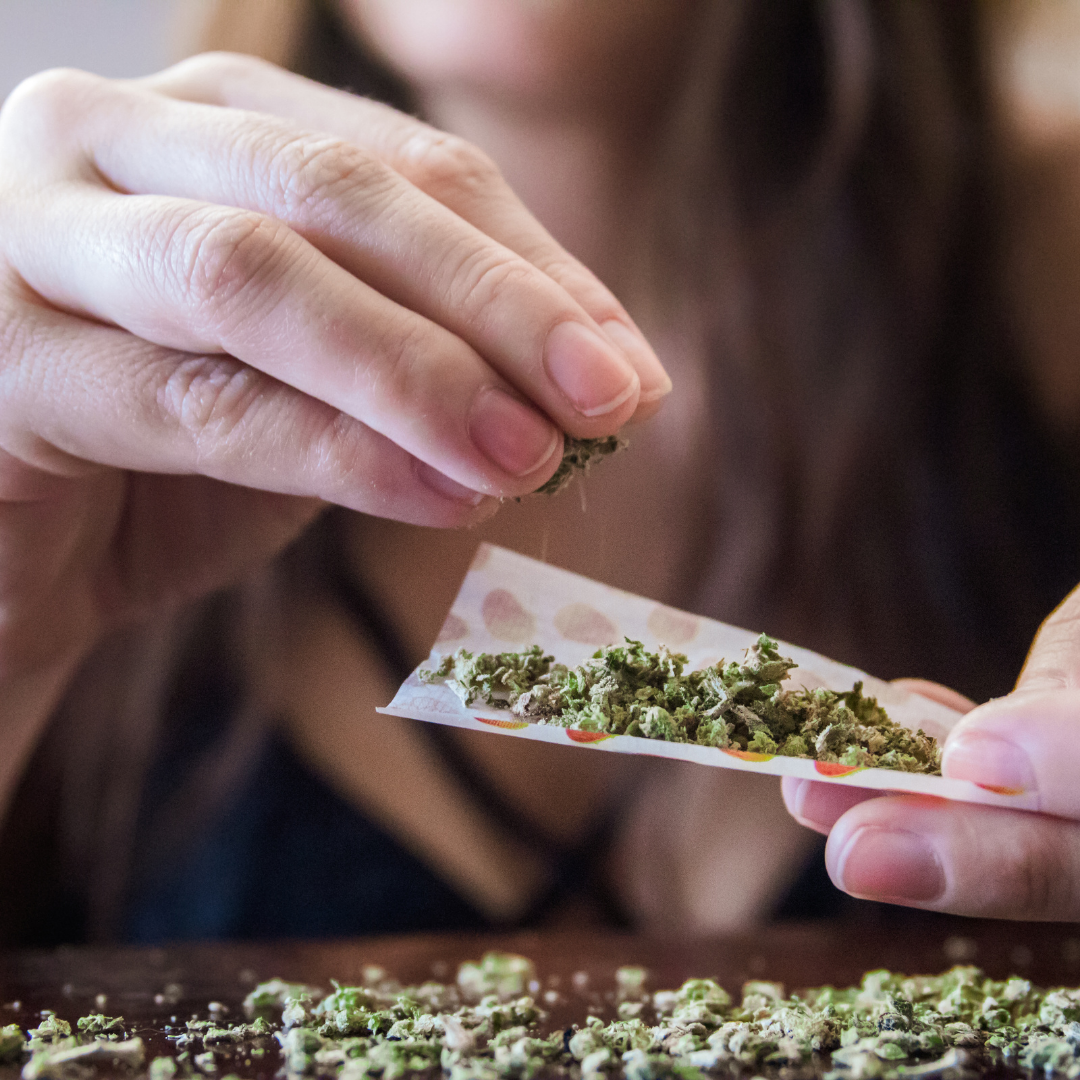Marijuana and Fertility

Questions like, how does marijuana affect fertility have become more common in the past few years. As the laws and stigmas surrounding recreational marijuana shift, more and more people of reproductive age are consuming cannabis . As more people begin to use marijuana, new questions and possible health concerns will arise, and the need for new research emerges.
In this article, we will review the existing research on marijuana (cannabis, weed, hash, etc.) and its implications on fertility health.
Fast Facts on How Weed Affects Fertility
- Limited research exists regarding exactly how weed affects fertility. Some studies have produced conflicting results.
- Marijuana has been shown to negatively impact several sperm parameters including, concentration, count , motility, and its genetic makeup .
- Marijuana can delay ovulation , alter female reproductive hormones, and it may decrease the chances of conception .
- Cannabidiol (CBD), a chemical found in marijuana, has strong anti-inflammatory and anti-oxidant properties . CBD’s ability to eliminate freed radicals and reduce inflammation may improve both male and female fertility.
- If you are struggling with infertility or are undergoing fertility treatment, it is best to steer clear of anything that has the potential to inhibit your ability to have a baby, like smoking weed.
Marijuana and Male Fertility
Historically, people have believed that marijuana use negatively affects your sperm. The majority of studies support this theory, but in some cases, marijuana has been associated with better sperm quality. Marijuana can cause changes in several semen parameters and decrease men’s fertility.
Marijuana and Sperm Count/Concentration
In 2015, a study was published that indicated marijuana may be a contributing factor to poor semen quality. In the study, men who smoked marijuana regularly (more than once per week) had a lower sperm count and concentration, two main indicators of semen quality. As displayed by the figure below, men who smoked marijuana had a 28% lower sperm concentration and a 29% lower total sperm count compared to those who didn’t .

In 2019, the Harvard T.H. Chan School of Public Health published a study linking smoking marijuana with higher sperm concentrations . In the study, men who smoked marijuana had an average sperm concentration of 62.7 million sperm per milliliter of ejaculate. The average sperm concentration for men who never smoked marijuana was 45.4 million/mL.

The average sperm concentration was 17.3 million/ML (1.38 times) higher for the group who had smoked marijuana. Only 5% of marijuana smokers had sperm concentrations considered below normal. The World Health Organization considers a normal sperm concentration for a fertile man to be 15 million/mL or above . Greater marijuana use was also associated with higher serum testosterone levels.
Researchers originally hypothesized that marijuana use would lead to reduced sperm quality. They commented that the surprising results show just how little we know about marijuana’s effects on fertility and overall health.
Marijuana and other Sperm Parameters
As you may know, sperm count and concentration aren’t the only things that determine sperm health. There are several semen parameters that also affect a man’s fertility. Cannabis use may negatively affect sperm morphology , motility, and its genetic makeup .
More research is needed before we can say for certain that marijuana is beneficial or harmful for male fertility. If you are struggling with infertility or if you have received sub-optimal semen analysis results, you may consider reducing or refraining from using marijuana while trying to conceive. If you use marijuana for therapeutic healing or if you are prescribed marijuana, you should consult with your doctor to make an informed decision. Reducing marijuana use is just one of many potential ways men can improve their fertility.
Marijuana and Female Fertility
Measuring marijuana’s effect on female fertility is more difficult than measuring its effect on men. For men, semen quality is a fairly direct measure of male fertility health. For women, there are several factors that influence their fertility.
Marijuana and Ovulation
Marijuana use may inhibit or delay ovulation. In one study, marijuana users experienced delayed ovulation by an average of 1.7 to 3.5 days compared to non-users . Marijuana’s delaying effects on ovulation may be explained by its effects on hormones.
The National Institute of Health published a study showing that marijuana use can affect reproductive hormone levels, especially those that impact ovulation. In the study, marijuana users had higher levels of luteinizing hormone (LH) . High LH levels can delay ovulation and decrease a woman’s chances of getting pregnant .
Women who smoked marijuana also had a higher proportion of luteinizing hormone to follicle-stimulating hormone. The ratio of LH to FSH can be indicative of fertility. For example, polycystic ovarian syndrome (PCOS) patients are known to have higher LH to FSH ratios which contribute to their ovulatory issues.
As we know, ovulation is necessary for pregnancy to occur. Reduced ovulation lowers a woman’s chances of getting pregnant. The altered reproductive hormone levels and resulting reduced ovulation rates may explain why the women in this study who used marijuana had a more difficult time conceiving.
Marijuana’s Affect on Pregnancy
Cannabis users were 41% less likely to conceive each monthly cycle than non-users. Pregnancy rates at the end of the study were also lower for the group who had used marijuana.

42% of marijuana users became pregnant during the study, 24% less than the total proportion of non-users that became pregnant (66% .)
Women should consider marijuana’s potential negative effects when they are trying to get pregnant. Reducing or eliminating marijuana use can help to boost female fertility.
CBD and Fertility
Cannabidiol (CBD) is a non-psychoactive chemical found in marijuana. CBD is known to have a number of pharmacological benefits like reducing inflammation and decreasing reactive oxygen species . CBD’s anti-inflammatory properties have piqued the interest of fertility specialists because inflammation is known to negatively affect both male and female fertility. Chronic inflammation can cause tissue damage and reduce blow flow and nutrient delivery impeding the body’s ability to function properly.
For women, inflammation affects hormone production, ovulation, and it is associated with endometriosis . Inflammatory disorders also account for a significant percentage of gynecologic disease. CBD can help to restore healthy blood flow and nutrient delivery to the uterus and ovaries by reducing inflammation and increasing circulation.
For men, inflammation can occur in the genital tract which is very harmful to sperm production and fertiltiy . CBD can help restore blood flow and nutrient delivery to the testicles. CBD can also help with sleep, anxiety, and other ailments.
There isn’t a ton of research available on CBD’s specific effects on fertility. CBD’s well documented anti-inflammatory qualities, minimal side effects, and it’s confirmed safety protocol for humans make it an exciting new treatment option to naturally improve both male and female fertility.
The Bottom Line
As marijuana use becomes more prevalent, there is an increased need for new and updated research. The saying “everything in moderation” seems to ring true once again when we consider marijuana. However, if you are struggling with infertility, or if you are trying to conceive you should probably refrain from using marijuana until you complete your fertility journey. Adding CBD to your daily routine might also increase your chances of getting pregnant.


